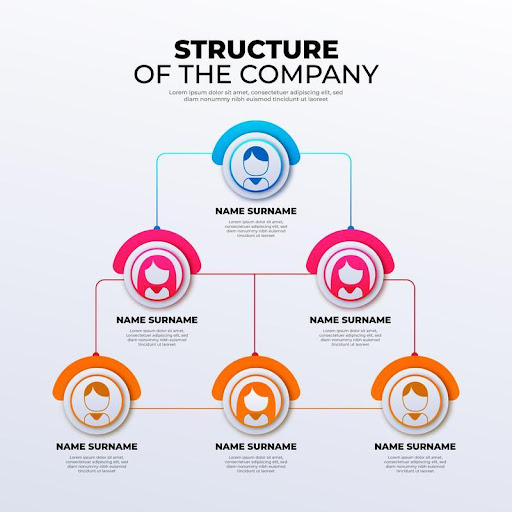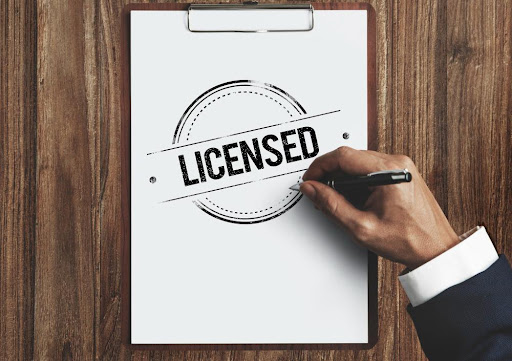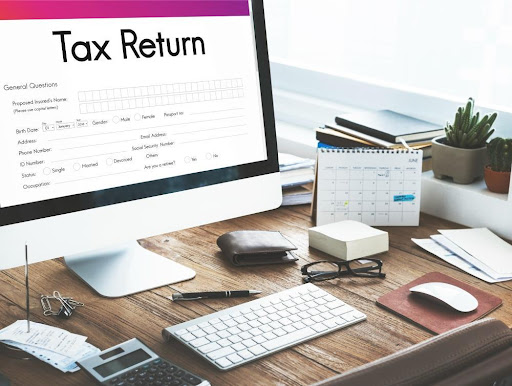How to Prepare for Starting a Tax Business in 2023

Contents
The rings of the cash register will soon be singing again as tax season kicks off in 2024. For aspiring entrepreneurs with tax expertise, now is the ideal moment to open a tax preparation business and capitalize on this lucrative tax preparation business opportunity.
The tax preparation industry racks up over $12 billion in annual revenue in the US alone, indicating a massive appetite for quality tax filing assistance. By following the strategic steps outlined in this guide, you can gain an edge over the competition by starting a tax business and growing a successful tax practice from the ground up.
You no longer have to Google "how to start a tax preparation business, how to start a tax business, how to start your own tax business, how starting a tax business can grow through tax preparation, or how to start a tax preparation business." This comprehensive playbook covers everything from choosing a business structure to marketing your services. You’ll gain insider tips on acquiring clients, maximizing efficiency, and positioning your new tax venture for lasting profitability. With the right preparation and positioning, you can be the one filing stacks of returns while your income stacks up this coming tax season and beyond.
So read on to begin your journey to starting a tax business of your dreams in 2023. With diligent planning and execution, you can be the expert locals turn to for expert filing help now and year-round tax strategy and services.
Let's embark on this exciting path to taking your tax know-how to market and carving out your niche in this booming industry.
Conduct Market Research for Starting a Tax Business
Before starting a tax prep business, conduct thorough market research on your local area and the tax preparation industry at large.
Analyze factors like:
- Competition - How many existing local providers are already established? What do they offer? What are their strengths and weaknesses? Look for gaps or underserved segments you can target and open a tax business.
- Demographics - What is the size and profile of your potential client base? Seniors, young families, small business owners? Understanding their likely needs and challenges will enable you to successfully open a tax business.
- Tax filing trends - Is demand for professional tax help rising or declining? How are digital solutions impacting the landscape? Study up on both local and nationwide trends before starting a tax business.
- Business costs - Realistically assess your startup and ongoing costs of starting a tax business, from licensing to software to marketing. Build out an operating budget and projected cash flow statement.
Immersing yourself in comprehensive market research before starting a tax business identifies opportunities and allows you to strategically position your tax business for success.
Choose a Business Structure
Most people starting a tax business operate either as sole proprietorships or limited liability entities like LLCs or S corporations. Key factors in choosing a business structure before starting a tax preparation business include liability protection, startup costs, operating complexity, and tax implications.
Sole proprietors benefit from simplicity and pass-through taxation. But your personal assets have no protection from business debts and lawsuits. Limited liability entities shield your personal assets but cost more to establish and require formal processes.
Consult with business advisors to weigh the pros and cons of your specific situation before starting a tax business. You can always open a tax preparation business as a sole proprietorship and evolve it into an LLC or S Corp later as the business grows.
Obtain Necessary Licensing
Check federal and state licensing requirements for tax preparers and businesses before you open a tax preparation business. At a minimum, you will need a Preparer Tax Identification Number (PTIN) from the IRS to file returns on clients' behalf. Your state may also require registration, bonding, insurance, and tax prep testing/CE requirements.
Additionally, consider optional certifications like Enrolled Agent (EA) status from the IRS or accreditation through the Accreditation Council for Accountancy and Taxation. These demonstrate advanced expertise in complex returns and IRS representation, giving your business more credibility.
Leave plenty of time to complete all necessary licensing, exams, background checks, and fees to legally operate. Failing to obtain proper credentials could result in penalties or closure.
Fund Your Tax Prep Business Startup
Another crucial step in starting a tax preparation business is to carefully project costs to cover all startup expenses over at least the first 12 months, including:
- Business formation fees
- Office space lease
- Computer hardware/software
- Tax research programs
- Office equipment/supplies
- Marketing activities
- Professional services like legal/accounting
- Licenses, memberships, and insurance
- Salaries if hiring staff
- Sufficient working capital
With thousands required to launch, most tax prep businesses need outside funding beyond any personal savings you may have. Common options include small business loans/lines of credit, crowdfunding, business credit cards, and SBA loans. Weigh funding terms and cash flow to borrow only what your revenue projections support repaying.
Choose the Right Location
Location is a crucial aspect of starting a tax preparation business. While many solo tax pros work from home, establishing a professional office space boosts your brand.

Prime criteria when evaluating locations include:
- Accessibility - Easy for clients to visit and find parking. Centralized areas and thoroughfares are ideal.
- Visibility - High-traffic retail areas provide awareness. Consider signage's potential.
- Competition - Separate yourself from competitors when possible.
- Cost - Balance location quality with budget, especially when starting.
- Compliance - Ensure zoning allows for office use.
- Growth prospects - Pick an area with room to expand into a larger space when needed.
Don't get locked into long leases until you validate your location. Short, flexible terms allow for testing in your journey to open a tax preparation business.
Set Up Your Office
Outfit your office to optimize productivity and project professionalism.
Must-have setup elements when you open a tax preparation business include:
- Equipment - Computers, printers, scanners, copiers, phones, paper shredders, calculators. Streamline with multifunction devices.
- Connectivity - High-speed internet is essential. Tech support contracts are recommended.
- Furnishings - Desks, chairs, filing cabinets, secure storage for records. Both functionality and comfort matter.
- Supplies - Forms, envelopes, letterhead, folders, pens, paper, postage, business cards, and tax table books. Stock up seasonally.
- Décor - Branded elements like logos and signage. Motivational prints and plants liven the space. A waiting room is also essential.
- Security - File locks, computer encryption, secure WiFi, alarm system. Protect sensitive client data.
Invest in quality to optimize efficiency and appeal to clients. Scale up furnishings and tech as your business grows.
Choose the Right Software
Tax preparation software in the quest to open a tax preparation business is a crucial investment that handles form completion, e-file processing, document management, and more.
Carefully evaluate leading software like Basil Practice Management based on:
- Capabilities - Tax analysis tools, accuracy checks, unlimited e-files, workflow management, document storage, and collaboration.
- Integration - Options to sync other business systems for efficiency.
- Support - Onboarding assistance plus readily available customer support.
- Scalability - Ability to add features and users as your business expands.
- Value - Competitive licensing costs with available discounts. No hidden fees.
- Reputation - Industry reviews and client satisfaction rates.
Opt for established yet affordable tax software that enhances and simplifies your processes.
Build Your Service Offerings
Clearly define the mix of specific tax services your tax preparation business will provide in your tax preparation business plan before you open a tax preparation business.
Core tax preparation should include:
- Individual returns - 1040, 1040A, 1040EZ plus state returns and extensions.
- Business returns - Forms 1120, 1120S, and 1065 for different entities.
- Specialty returns - Estate taxes, gift taxes, non-resident alien returns.
- Audit representation - Assisting clients if audited by taxing authorities.
Consider expanding into adjacent services like accounting, financial planning, college savings plans, and business formation consultations to provide year-round value. Determine your niche areas of specialization or packages.
Set Competitive Rates
Before you open a tax preparation business, conduct competitive research to benchmark your fees against those of other local preparers. Most set hourly rates or base pricing on form type and complexity.
Common pricing models include:
- Hourly fee structure - Rates range from $50-$500+ per hour based on experience level.
- Per form fee schedule - Simple 1040s cost between $100-300+. More for itemized, self-employed, business returns.
- Value tier pricing - Packages based on the number of forms covered and included services/support.
- Monthly retainer - Flat monthly fee for unlimited services. This is common for business clients.
Ensure your rates and packages in your tax preparation business plan align with your positioning and target clientele. For example, premium rates for white-glove service or low rates for volume.
X. Market Your New Tax Prep Business
Implement a multifaceted marketing plan focused on your ideal client avatar to generate leads.
Low-cost tactics to boost awareness include:
- Networking - Attend community, chamber, and professional association events.
- Website - Create an informative site highlighting your expertise and services.
- Social media - Share tax tips and promotions on platforms clients use.
- Email marketing - Send monthly newsletters with deadlines and promos.
- Print materials - Flyers and posters around town. Door hangers in target neighborhoods.
- PR - Pitch advice columns and data reports to the local press as an expert.
- Referrals - Incentivize existing clients to spread the word to associates.
- Search optimization - Use targeted keywords related to your service area.
Persistently and consistently market your services across channels. Track metrics to refine outreach. Advertise tax prep heavily between January and April.
Develop a Standout Brand
Differentiate your business through exceptional service and a strong brand identity. Ways to stand out include:
- Specialization - Gain renown as niche experts, like expat taxes or cryptocurrency.
- Customer focus - Provide white-glove concierge service with 24/7 access and rapid response times.
- Technology - Offer conveniences like online portals, paperless filing, and virtual consultations.
- Atmosphere - Make your office upbeat and relaxed, not cold and clinical.
- Certifications - Earn advanced designations like CPA or EA to stand out.
- Giving back - Sponsor local causes or host charity events to build community.
Prominently highlight your differentiators across all brand messaging and client touchpoints.
Hire Support Staff (If Needed)
When your client workload exceeds what you can handle solo, strategically add support staff.
Ideal hires for tax prep businesses include:
- Preparers - Licensed CPAs, EAs, or candidates passing required tests to prepare returns.
- Receptionists - Scheduling, calls, office management, administrative support.
- IT specialists - Managing hardware, software, security, and data.
- Marketing coordinators - Managing campaigns, social media, and websites
- Billers/collectors - Sending invoices, securing payments, and collecting
Outsourcing or automating some administrative tasks is an alternative to hiring. Scale your team carefully as revenue grows to afford salaries.
Prepare for Tax Season
Ramp up for the heavy tax season by:
- Stocking up on forms and supplies
- Finalizing filing processes and organizational systems
- Preparing client organizers and intake questionnaires
- Tuning up hardware/software to handle high volumes
- Scheduling appointments and allocating staff
- Rushing tax identity theft protection measures
- Preparing office space for customer traffic
- Launching marketing campaigns and promotional pricing
Proactively planning ensures you meet surge demand smoothly and capitalize on this prime revenue opportunity.
Continue Growing All Year
Forward-thinking tax pros build their book of business year-round through:
- Tax planning - Advise clients on strategies to optimize next year's return.
- Audit help - Year-round assistance handling IRS questions or audits.
- Bookkeeping - Provide monthly accounting and payroll services.
- Financial advising - Long-term services around investments, insurance, and retirement.
- Referrals - Earn commissions referring clients to CPAs for complex issues.
- Client seminars - Host luncheons or webinars on topics like college savings.
- Marketing - Remind clients you're available for ongoing tax needs.
Offering valuable services beyond tax season retains clients as year-round partners.
Unlock Efficiency with Basil's Suite of Features
Earlier, we discussed how the right tax software is essential for new entrepreneurs researching how to start a tax preparation business, how to start a tax business, how to start your own tax business, how to grow a tax business, and other critical questions. But not all solutions are created equal when it comes to optimizing efficiency for a new tax preparation startup.
That's where Basil Practice Management Software shines. Dubbed "Refreshingly Simple Software for Accountants," Basil's intuitive cloud platform centralizes everything your firm requires to collaborate, organize, track time, sign documents, and more in one seamless ecosystem.
Let's tour some of Basil's standout features that make tax season success a breeze:
- Client Portal: This secure hub offers password-protected file sharing, so clients can easily submit documents. The sleek interface is so user-friendly even tech novices rave about it.
- eSignatures: Endless clicks and printing fade away with unlimited eSignatures. Electronically sign off on forms in seconds, right within the online dashboard. IRS-approved security is included.
- Time Tracking: Bill every minute accurately with automated tracking by project, client, and task. Generates reports to see real-time productivity analytics. No revenue is left behind.
- Chat: Instantly communicate with your team and clients right on the platform. Discuss projects, share feedback, and make plans without constant emails and calls.
- CRM: Centralized client profiles and documentation history mean the information you need is always at your fingertips. Streamlined efficiency at its finest.
- Mobile: Work on the go with full functionality on smartphones. Collaborate, sign, share, and stay updated with push notifications in real-time.
Basil delivers simplicity, automation, and organization so you can focus fully on client needs, not administrative chaos. Let Basil become your tax season (and all-year) secret weapon!
Streamline Your Practice for Tax Season Dominance
Come January 2024, your expertise will be in peak demand if you start a tax business as clients scramble for filing assistance. Avoid getting buried in disorganization. Leverage solutions that simplify, automate, and enable you to take advantage of this tax preparation business opportunity.
With the right digital tools in place, you can rise above the stress of tax season and deliver white glove service at scale. That's where Basil Practice Management software shines- its intuitive cloud platform centralizes client collaboration, document management, eSignatures, time tracking, billing, and everything else today's thriving tax practices depend on.
Basil enables firms to work smarter, not harder. Sign up for a tailored free trial to see firsthand how Basil's suite of features can accelerate your productivity and profits. Let Basil alleviate your administrative headaches so you can focus fully on client deliverables. Equipped with Basil's solutions, your firm will be primed for tax season success and beyond.









